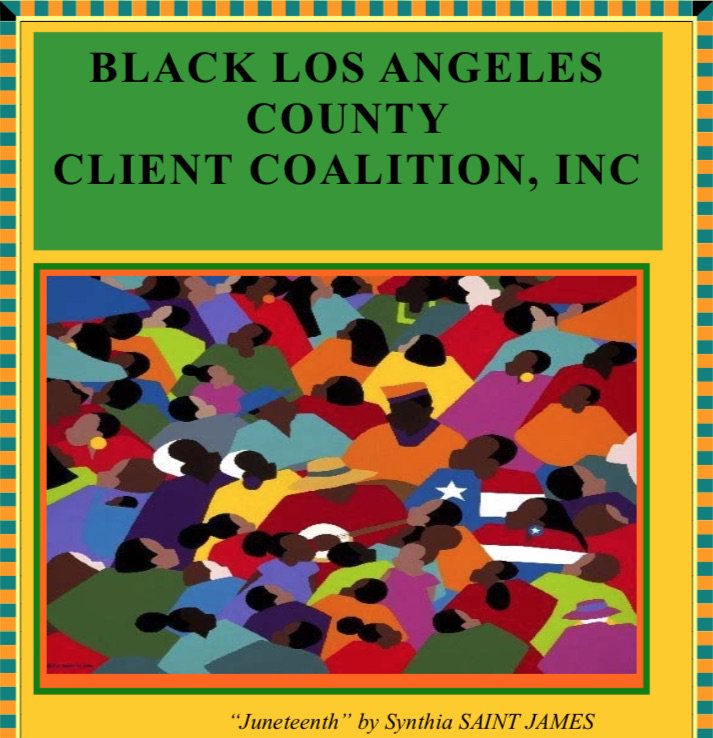About BLACCC, Inc.
In order to ensure the African American mental health services needs were met, the Los Angeles County black mental health stakeholders formed the Black Los Angeles County Client Coalition (BLACCC) in 2006 to advocate for mental health service delivery for the under served / un-served African American population.
Accomplishments
- Annual "Keeping Hope Alive" Community Mental Health Recovery and Wellness Cultural Forums since December 2007
- Advocacy training opportunities for members of BLACCC
- Participation in the African American Under Represented Ethnic Population (UREP) committee
- Participation in the Mental Health Housing Trust Fund
- Facilitated attendance for mental health consumers at mental health conferences and training sessions
- Participation in DMH-California Reducing Disparities Project (CRDP): African American Focus Group
- Website launched October 2011
- Year Two-Integrated Recovery Network Department of Labor Consortium Member
Future Plans
- Annual Community Mental Health Recovery and Wellness Cultural Forum
- Conducted outreach and services with special emphasis on homelessness for African Americans
- Implement an effective self-help peer advocacy network which focuses on the needs of the underserved/unserved African Americans
- Continue to reduce stigma and discrimination campaigns by educating the public about mental health and the importance of mental health treatment and services
- The Black Los Angeles County Client Coalition (BLACCC) proposes to implement a client-driven Cross-Sector Collaboration (CSC) to increase service effectiveness in mental health by proactively and systematically promoting interagency/cross-agency collaboration and assisting mental health consumers to resolve issues around access and quality of mental health services to improve client outcomes.
In order to ensure the African American mental health services needs were met, the Los Angeles County black mental health stakeholders formed the Black Los Angeles County Client Coalition (BLACCC) in 2006 to advocate for mental health service delivery for the under served / un-served African American population
Black Los Angeles County Client Coalition, Inc. Tel: (323) 684-4390 United States Copyright © 2018 (BLACCC) Global. All Rights Reserved.

